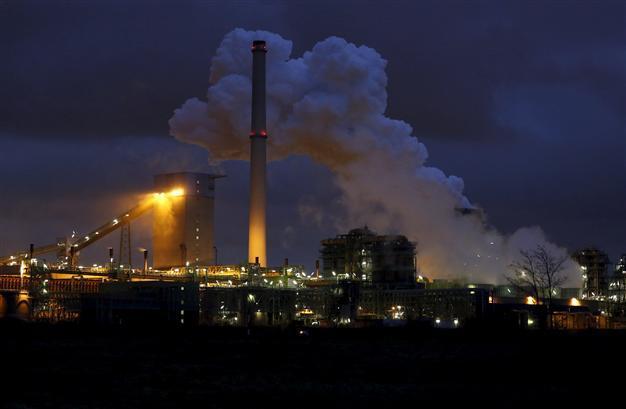World’s richest tenth produce half carbon emissions, poorest half one tenth: Oxfam
LONDON - Reuters

The coking plant and blast furnace of ThyssenKrupp Steel Europe AG are seen in Duisburg in this January 14, 2014 file picture. REUTERS Photo
The richest tenth of the world’s people produce half of all carbon emissions, while the poorest half - most threatened by droughts and super storms linked to climate change - produce only one tenth, Oxfam said on Dec. 2.The richest 10 percent have, on average, carbon footprints 11 times that of the poorest 3.5 billion people on the planet, the campaign group said in a report to coincide with talks in Paris this month on a global deal to slow climate change.
One of the biggest obstacles facing negotiators from 195 countries is how to find the billions of dollars needed by developing nations to enable them to stop using fossil fuels and adapt to severe weather shocks caused by climate change.
“Climate change and economic inequality are inextricably linked and together pose one of the greatest challenges of the 21st century,” Tim Gore, Oxfam’s head of food and climate policy, said in a statement.
“Paris must be the start of building a more human economy for all - not just for the ‘haves’, the richest and highest emitters, but also the ‘have-nots’, the poorest people who are the least responsible for and most vulnerable to climate change.”
Emissions are rising fastest in developing countries, Oxfam said.
Yet emissions relating to goods and services consumed by the richest citizens in China, India, Brazil and South Africa remain some way behind those of their counterparts in the wealthiest countries of the Organization for Economic Co-operation and Development (OECD), it said.
Oxfam found that India’s richest 10 percent use on average just one quarter of the carbon used by the poorest half of the population of the United States.
It also said the total emissions of China’s poorest 600 million people - half the country’s population - are only one third of the total emissions of the United States’ richest 10 percent, some 30 million people.
“Rich, high emitters should be held accountable for their emissions, no matter where they live,” Gore said.
“But it’s easy to forget that rapidly developing economies are also home to the majority of the world’s very poorest people and while they have to do their fair share, it is rich countries that should still lead the way.”
Oxfam said a select group of billionaires, who had made many of their fortunes in fossil fuels, were the only people to stand to gain from a weak deal in Paris.
















